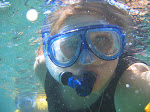Article: "The Educator's Guide to the Read/Write Web" by Will Richardson
II. Will Richardson's "The Educator's Guide to the Read/Write Web" outlines five distinct tools now readily availible on the internet that allow students to interact with others from across the world. This article explains these tools which include feeds, social bookmarking, blogs, wikis, and podcasting. It also provides examples for educators which demonstrate how they can be used in a classroom situation. Furthermore, Richardson addresses such issues of what these tools require from us as educators and how to incorporate new types of thinking into our classrooms that allow students to not only accesss information on the web but also assess this informaiton for both usefulness and accuracy.
- Blogs allow students to publish their work and interact with others online.
- These can be used for original student work and as research tools.
- Wikis allow students to work with a large community to create and edit informaiton online.
- Classrooms can create their own wikis or participate with others in already existing wikis such as Wikipedia.
- Podcasting gives the user access to endless hours of recordings online which can be useful in classroom situations.
- Students use many sources when compiling information. This task can be made much easier as students can subscribe to feeds and recieve up to the minute information regarding such hot topics as Global Warming.
- Social bookmarking allows people to save entire websites and to access those sites saved by other people.
- This is just one more way students can search for knowledge and participate in the global society of learners.
- These new tools can empower students as learners.
- In able to use these sources to their full potential, students must be taught how to elvaluate the information they find.
- Both the accuracy and usefulness of what is found must be determined.
This article seems incredibley useful to me as an educator. I did not even realize that all of these options were availible online and without the examples that this article mentioned, I would have have been hard pressed to identify their usefulness inside the classroom. Richardson also makes a good point when addressing how we need to empower our students to critically exam what they find, look at the sources, and evaluate the information. Students need to know that everything on the internet is not to be trusted and it is our job as educators to make sure that the information kids are accessing is being evaluated. The internet is only going to grow in its capabilities and our students must know how to access information to succeed in the society we live in today. These are skills that should be taught in the classroom and are easily integrated into all content areas.

No comments:
Post a Comment